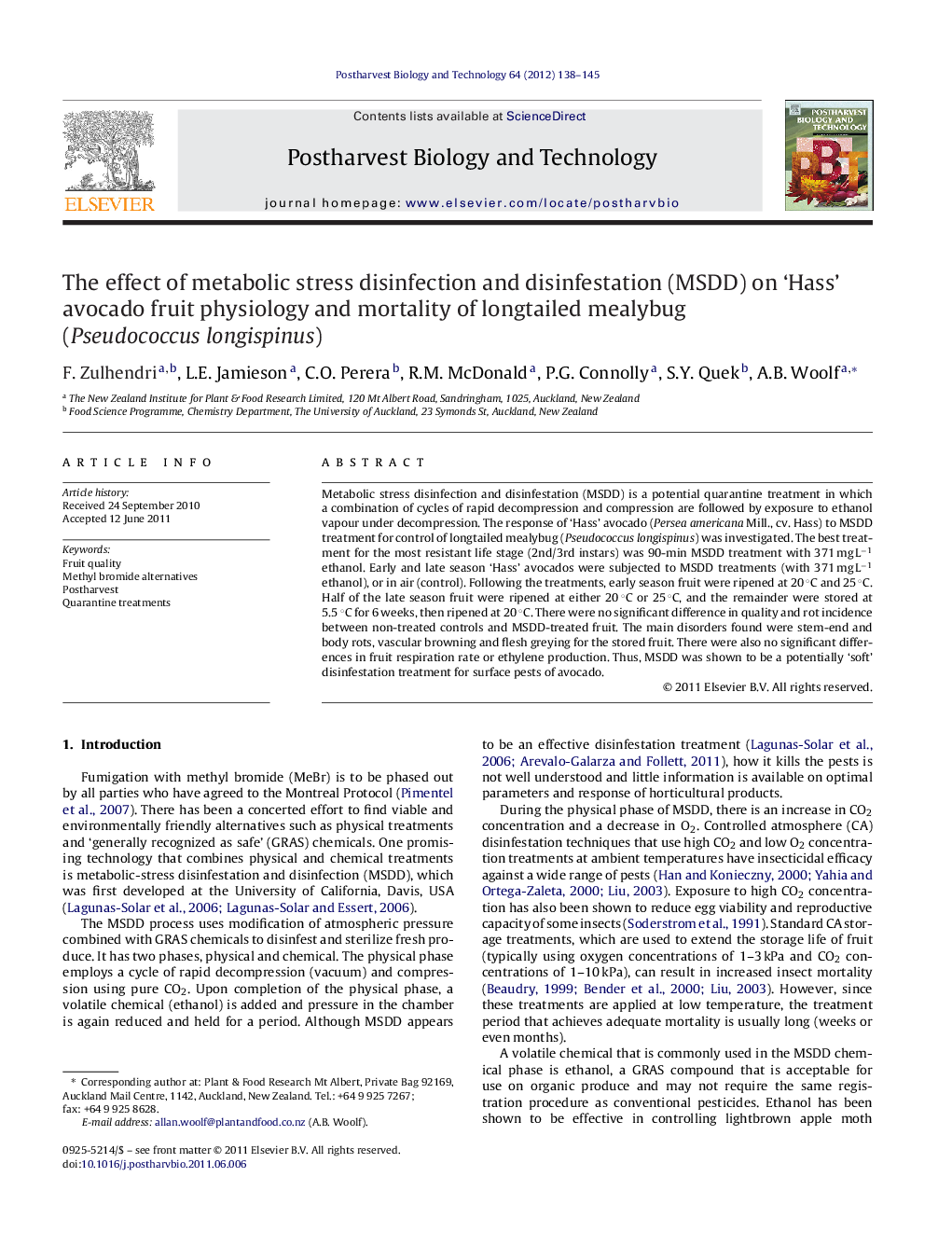| Article ID | Journal | Published Year | Pages | File Type |
|---|---|---|---|---|
| 4518834 | Postharvest Biology and Technology | 2012 | 8 Pages |
Metabolic stress disinfection and disinfestation (MSDD) is a potential quarantine treatment in which a combination of cycles of rapid decompression and compression are followed by exposure to ethanol vapour under decompression. The response of ‘Hass’ avocado (Persea americana Mill., cv. Hass) to MSDD treatment for control of longtailed mealybug (Pseudococcus longispinus) was investigated. The best treatment for the most resistant life stage (2nd/3rd instars) was 90-min MSDD treatment with 371 mg L−1 ethanol. Early and late season ‘Hass’ avocados were subjected to MSDD treatments (with 371 mg L−1 ethanol), or in air (control). Following the treatments, early season fruit were ripened at 20 °C and 25 °C. Half of the late season fruit were ripened at either 20 °C or 25 °C, and the remainder were stored at 5.5 °C for 6 weeks, then ripened at 20 °C. There were no significant difference in quality and rot incidence between non-treated controls and MSDD-treated fruit. The main disorders found were stem-end and body rots, vascular browning and flesh greying for the stored fruit. There were also no significant differences in fruit respiration rate or ethylene production. Thus, MSDD was shown to be a potentially ‘soft’ disinfestation treatment for surface pests of avocado.
• MSDD is novel disinfestation technique utilizing pressure change, modification of atmosphere and ethanol. • 90 min MSDD treatments with 371 mg L−1 ethanol control all lifestages of longtailed mealybug. • 90 min MSDD treatments with 371 mg L−1 did not significantly reduce fruit quality.
